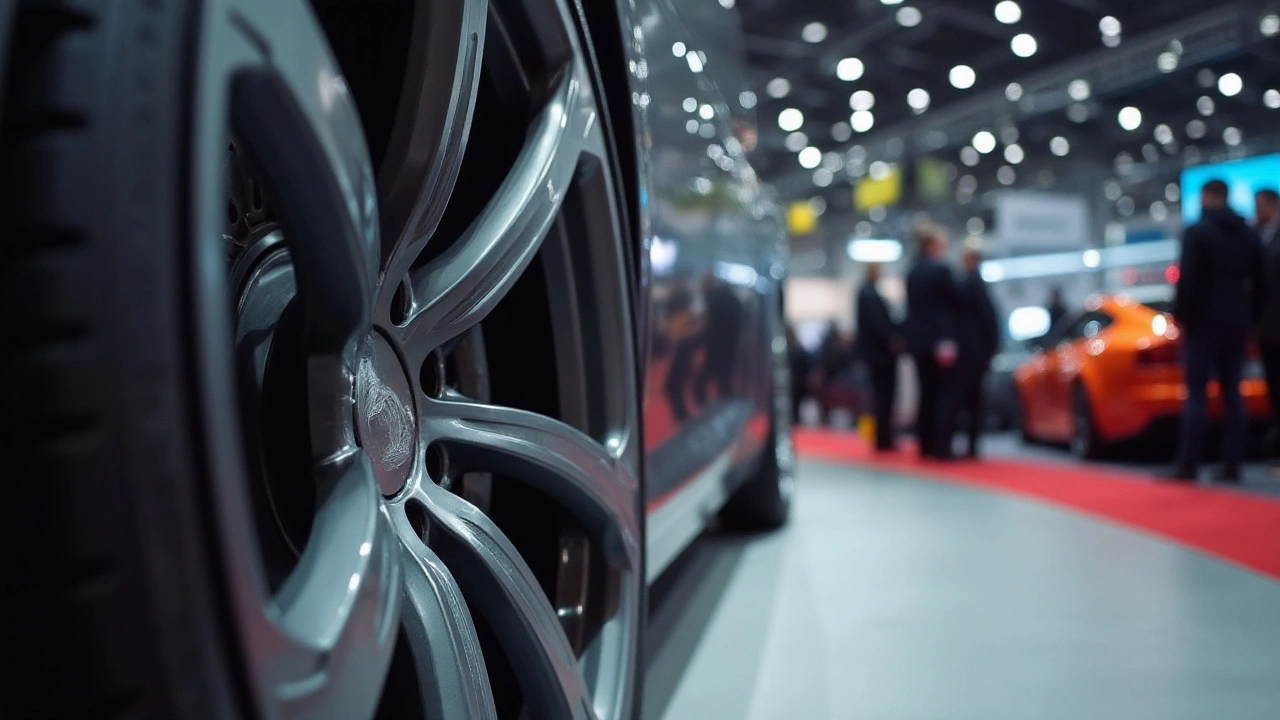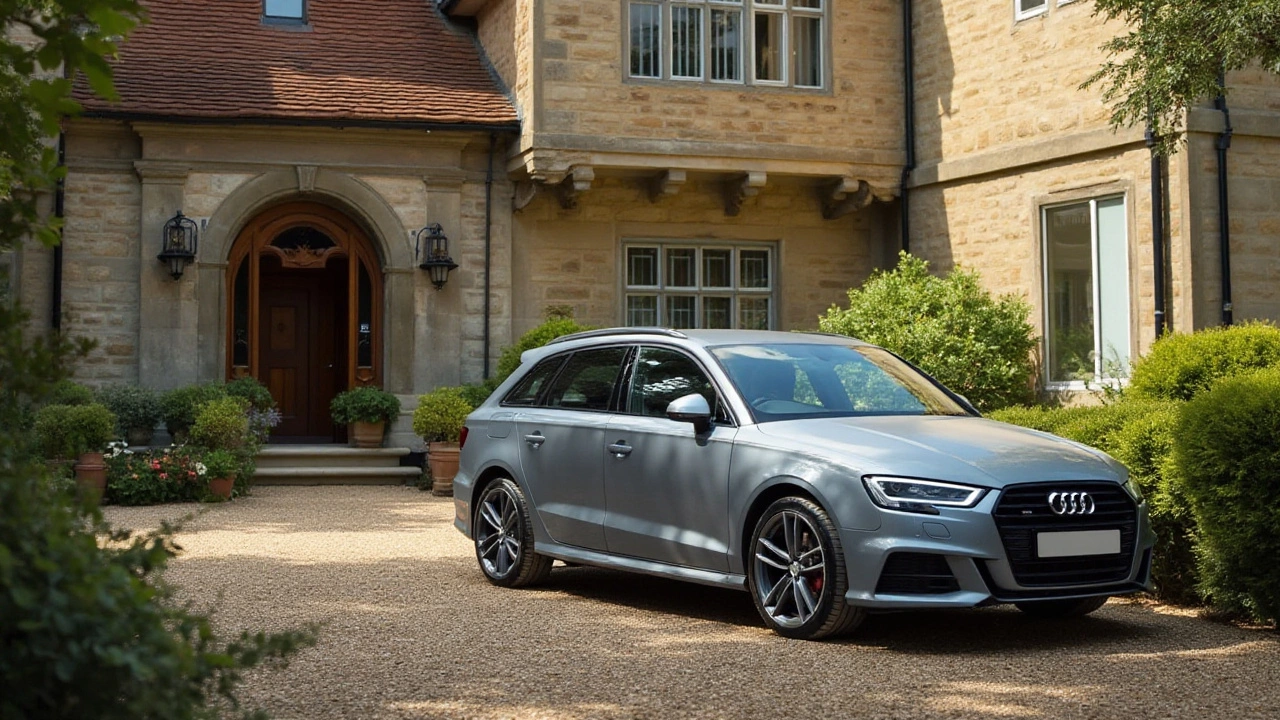Alloy wheels have captured the hearts of many car enthusiasts. They aren't just about beauty; they bring numerous advantages that can enhance both the appearance and performance of a vehicle. Choosing alloy wheels is an investment that goes beyond mere looks.
Unlike their steel counterparts, alloy wheels come in a wide array of styles and finishes, allowing for endless customization options. Whether you're aiming for a sleek look or something more rugged, there's no shortage of designs to choose from.
Beyond aesthetics, alloy wheels contribute to a vehicle's performance. Being lighter than traditional wheels, they help improve fuel efficiency and steering response, making for a more dynamic driving experience. They also dissipate heat more effectively, which can improve braking and extend the life of your brakes.
However, not every set of alloy wheels is right for every vehicle. It's essential to consider factors like size, compatibility, and design preference when selecting the perfect wheels for your ride. With the right set, your vehicle can not only turn heads but also deliver an enhanced driving experience.
- Aesthetic Appeal and Design Variety
- Performance Benefits of Alloy Wheels
- Durability and Maintenance
- Choosing the Right Set for Your Vehicle
Aesthetic Appeal and Design Variety
When it comes to customizing a vehicle, few options offer as much impact as upgrading to alloy wheels. These wheels have solidified their place in the auto enthusiast's toolkit, primarily because of their irresistible charm and versatility. They're not just a fashion statement; they’re an opportunity to reflect personal taste and style. From sleek modern designs to bold, intricate patterns, alloy wheels cater to an array of aesthetic preferences. There's something unique for every personality, making customization a more personal and expressive experience.
The variety of designs available is staggering. You'll find everything from classic polished styles reminiscent of vintage luxury cars, to hyper-modern patterns that imbue a sense of speed and dynamism even before the car moves. Each style serves a different kind of vehicular persona, catering to car owners who see their vehicles as extensions of their own identities. Due to the flexible nature of aluminum and its alloys, manufacturers can craft wheels into complex designs without compromising durability. This flexibility has led to an explosion in the variety of designs available on the market today, characterized by sharp lines, clean curves, or intricate lace-like patterns.
Color customization adds another layer of personalization to car customization. While the satin and matte finishes remain popular for their understated elegance, shiny chrome or glossy colored options push boundaries, creating a visually striking effect. Car owners often opt to match or contrast their alloy wheels with the car’s body color, creating a synchronized or bold look. Professionals can paint or powder coat these wheels to fit any color scheme, allowing for a creative expression that paints a genuinely personalized portrait of the vehicle.
Pioneers in the automotive industry, like Enkei and BBS, have continually pushed the envelope in wheel design innovation. According to Car and Driver magazine, "These manufacturers don't just focus on aesthetic appeal but also address performance aspects, ensuring that the wheels stand up to rigorous demands."
Car enthusiasts and manufacturers are now not only considering aesthetic aspects but how these wheels contribute to the car's performance and fuel efficiency.It’s a thrilling time for those who see their car as more than just a means of transportation but as a canvas for personal expression. For those in the know, swapping out stock wheels for alloys serves as a rite of passage into a higher echelon of automotive tuning and customization.

Performance Benefits of Alloy Wheels
The allure of alloy wheels goes well beyond their captivating appearance; their performance benefits make them a worthy upgrade for any vehicle. One of the most striking advantages is the weight reduction compared to traditional steel wheels. This reduction in unsprung mass has a direct positive impact on a vehicle's handling. It translates to better agility when navigating corners, as the wheels can respond more swiftly to steering inputs. The vehicle becomes not only quicker on its feet but also more responsive to the driver's touch, resulting in a more engaging driving experience.
Another compelling advantage of alloy wheels is their superior ability to dissipate heat. This characteristic proves crucial during high-performance driving or extended braking scenarios. The enhanced heat conductivity of alloys helps keep the brake temperatures in check, reducing the risk of brake fade—a condition where braking efficiency diminishes due to overheating. This quality not only enhances safety but also extends the lifespan of the brakes themselves. An often-mentioned fact is that alloy wheels can help reduce the risk of tire blowouts by maintaining a more stable tire pressure and temperature under stress.
Diversifying into the technical aspects, alloy wheels contribute to improved fuel efficiency. Their lightweight nature requires less energy for acceleration, which can lead to noticeable savings at the pump. This is particularly beneficial for city commuters who experience frequent starts and stops. Additionally, the reduction in rotational mass not only aids with better acceleration but can influence the overall ride quality, offering a smoother ride on uneven surfaces. A smoother ride can lead to reduced wear on suspension components, indirectly contributing to maintenance savings.
Many performance metrics, such as speed and braking distances, are subtly yet appreciably influenced by the choice of wheel upgrade. Those looking to participate in motorsports or even just demanding a bit more from their daily commute can benefit significantly from this change. It's eye-opening how enthusiasts often note a sense of empowerment simply from ensuring their vehicle is operating at peak connectivity and responsiveness. A study by the Auto Performance Institute reveals that drivers using alloy wheels often report improved cornering and agility.
"The effectiveness of alloy wheels on handling is particularly noticeable in performance vehicles where precision and grip are paramount," stated renowned automotive engineer Charles Redmond in 'The Journal of Modern Engineering'.
Alloy wheels not only enhance technical metrics but also affect the emotional connection a driver feels with their vehicle. Those who frequently embark on road trips or enjoy spirited weekend drives on winding roads might find their connection with the road becomes more visceral and immediate. It's this blend of improved performance and emotional resonance that creates the perfect synergy for automotive enthusiasts.

Durability and Maintenance
When it comes to choosing wheels for your car, alloy wheels often stand out for their impressive durability. Thanks to their unique composition, typically a mix of aluminum or magnesium with other metals, alloy wheels offer a combination of strength and lightness that steel simply can't match. This robust construction helps reduce wear and tear over time, making them a savvy choice for those who want longevity without sacrificing performance.
The maintenance required for alloy wheels is another aspect worth considering. While they are generally more resistant to corrosion compared to steel wheels, they aren't entirely immune to damage. Regular cleaning is crucial to prevent the accumulation of brake dust and road grime, which can otherwise lead to corrosion or staining. Using a mild, pH-balanced wheel cleaner and a soft brush will help keep the wheels in top condition, enhancing their shine and prolonging their lifespan.
Beyond simple cleaning, it's important to check for signs of damage like cracks or dents, especially after hitting a pothole or curb. Alloy wheels are often more forgiving of such impacts than steel, but they can still sustain damage that may affect your vehicle's alignment or tire health. Repair services are available for minor damages, meaning you don't always need to replace the entire wheel if you spot a small crack. Interestingly, a study revealed that maintaining your wheels can help improve fuel efficiency by an average of 3%, saving you money in the long run.
One lesser-known fact is that alloy wheels can also improve a vehicle’s heat dissipation. This is especially beneficial if you frequently drive under heavy braking conditions, as there's a reduced risk of overheating and brake fade. Regularly inspecting your wheels for any buildup that could hinder their heat-dissipating properties is good practice, ensuring both safety and performance are up to par.
Frequent rotation of your tires can also play a significant role in maintaining both durabilities. By rotating your tires regularly, you're not only extending the life of the tires but also evenly distributing the wear on the wheels. This habit not only improves safety but ensures that your wheels continue to look and perform their best over time. As a famous mechanic once said, "Taking care of your wheels is taking care of your ride," a reminder that the right attention can go a long way in ensuring your alloy wheels serve you well.

Choosing the Right Set for Your Vehicle
When it comes to selecting alloy wheels for your vehicle, it's crucial to balance aesthetics with practicality. Start by considering the size of the wheels you wish to install. Larger wheels often enhance the visual appeal of a car, giving it a more commanding presence on the road. However, it's important to note that bigger isn't always better for every car type. Larger wheels can impact ride comfort and may require performance-adjusted tires, so ensure that your choice aligns with your driving habits and preferences.
Compatibility with your vehicle's make and model is another vital aspect. Not all wheels fit all cars, and improper size or fit can lead to problems like wheel wobble or increased wear on suspension components. Consult your vehicle's user manual for recommended specifications or speak with a professional to ensure the chosen wheel upgrade supports your vehicle's mechanical requirements. It's worth noting that some high-performance models may already come with optimized wheel configurations, so adjustments should be made thoughtfully.
The material composition of the wheels also plays a role in their selection. While most wheels labeled as alloys comprise an aluminum base, more exotic, lightweight versions may contain higher percentages of magnesium or other metals. Although these may offer performance benefits by reducing unsprung weight even further, they often come at a higher cost. Choose the best material based on your budget and desired performance traits, keeping in mind that higher-priced options might offer better longevity and resilience.
"A well-chosen set of alloy wheels not only heightens your car's style but can immensely boost its performance," notes Car and Driver Magazine. "When invested wisely, this upgrade becomes more than just a visual treat."
Lastly, style cannot be overlooked. From classic sleek five-spoke designs to intricate multi-spoke patterns, options abound, allowing one to personalize their car to align with their personality and brand. For those keen on making their vehicle stand out, finishes like polished metal, matte black, or even colored coatings afford unique looks. Always appreciate, however, that more elaborate designs can sometimes require more care and maintenance to keep in pristine condition on every day drives.






